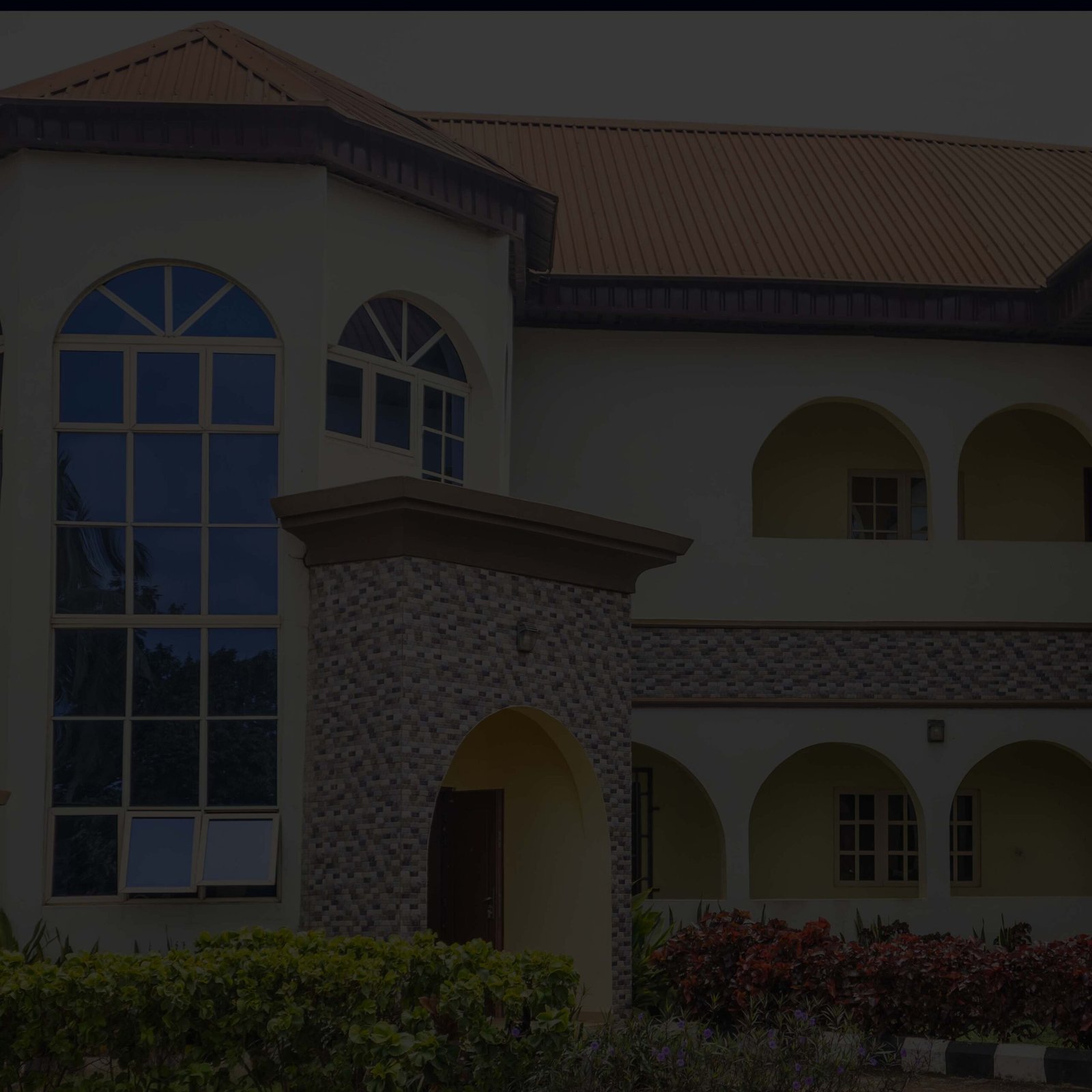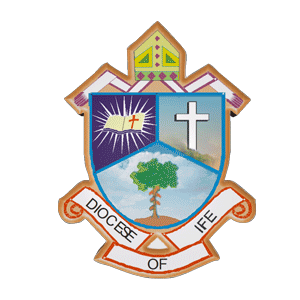THE DIOCESE OF IFE: HISTORY IN PERSPECTIVE
Ife Anglican Diocese as it was referred to at inception, took off with two Archdeaconries on 4th of November, 1990 with the first Diocesan Bishop, the Rt. Rev. Gabriel Babalola Oloniyo enthroned that very day at the Cathedral Church of St. Philip, Ayetoro, Ile-Ife.
The two Archdeaconries were Ife Archdeaconry under the supervision of the Ven. J.O. Ogunlade and Origbo Archdeaconry under the administration of the Ven. S.O. Oluwatusin. The two Archdeaconries prior to the creation of the Diocese were made up of the following District Church Councils: Ife District Church Council with 19 Churches; Ifetedo District Church Council with 12 Churches; Iremo District Church Council with 16 Churches; Ayegbaju District Church Council with 16 Churches; Origbo District Church Council with 18 Churches; Edunabon Chapelry with 11 Churches and Moro District Church Council with 7 Churches.
The age long dream of getting a Diocese was achieved through hard work and cooperation of several dedicated members of the two Archdeaconries greatly supported by some illustrious sons and daughters within Ife and Origbo axis. Notable among the individuals were: Late S.O. Olagbaju, late Alade Adeyefa, late Chief Mrs. A.A. Adeyemi, late Prince Soji Oyebadejo, late Chief Isaac Olagbaju, late Chief S.O. Afolabi, late Mr. Akin Adetunji, late Chief Yemi Orafidiya, late Baale J.A. Obawole, late Chief Peter Ogunleye, late Chief T.O. Obiwumi, late Chief S.O. Amusan, late Chief O. Akinyanran and some who are still living which included: Chief Bisi Olatunji, Chief B.O. Omirefa, Hon. Justice T.A. Oyeyemi and a host of others.

The first Diocesan Bishop, the Rt. Rev. Gabriel Babalola Oloniyo, Mrs. Abigail Olayinka Oloniyo (the Bishop’s wife) and their family were welcomed to Ife land on 3rd of November, 1990 with pomp and pageantry having been elected, confirmed and consecrated on the 1st of November, 1990 at the Cathedral Church of St. Peter’s Anglican Church, Ake, Abeokuta.
The Diocese was inaugurated on November 4, 1990 with St. Philip, Ayetoro becoming the Cathedral of the newly inaugurated Diocese. The service of inauguration and enthronement was anchored by the Most Rev. Dr. Joseph Abiodun Adetiloye, Archbishop, Primate and Metropolitan of all Nigerian. In attendance at the service were twenty Bishops. With the inauguration, the Diocese became the 39th Diocese in the Church of Nigeria Anglican Communion.
CLERGY ROLL
At inception of the Diocese, there were 15 Priests out of which two were of Venerable Status. The list included the following: Ven. J.O. Ogunlade, Ven. S.O. Oluwatusin, Rev. M.O. Ipinmoye, Rev. S.O. Ogunro, Rev. G.A. Faniyi, Rev. P.O. Ajayi, Rev. J.A. Arotiowa, Rev. M.O. Ogunmodede, Rev. R.L. Opadare, Rev. M.A. Ayorinde, Rev. P.A.A. Yusuff, Rev. J.A. Olaosebikan, Rev. S.O. Ayinla, Rev. S.O. Babalola and Rev. J.K. Akande. As at the time of writing this report, the number of serving Priests had increased to above ninety.
THE FIRST SYNOD AND THE EPISCOPATE OF RT. REV. G.B. OLONIYO
The First Session of the First Synod of the Diocese took place at the Cathedral Church of St. Philip, Ayetoro, Ile-Ife from Thursday 4th to Sunday 7th April, 1991. The theme of the Synod was “Christ the Centre”. The Synod which has the then kabiyesi Oba Okunade Sijuade Olubuse II in attendance also witnessed the dedication of the Office Complex built within the Bishop’s Court premises.
CHURCH GROWTH
At inception, the newly created Diocese took off with two Archdeaconries (Ife and Origbo). On April 28, 1991 the first Provost of the Diocese, the Very Rev. J.O. Ogunlade was installed. However, the following Archdeaconries were created on Friday July 19, 1991: Ipetumodu, Iremo, Ayegbaju, Ifetedo, Edunabon and Moro.
The newly formed Archdeaconries were subsequently inaugurated:
1. Iremo Archdeaconry – September 1, 1991
2. Ayegbaju Archdeaconry – September 8, 1991
3. Ifetedo Archdeaconry – September 15, 1991
4. Edunabon Archdeaconry – September 22, 1991
5. Moro Archdeaconry – October 6, 1991
In August 1993, the group of Churches in Area 5 of Ife Divisions were carved out as Oyere Archdeaconry. Other Archdeaconries created in succession were Ilare – August 4, 1996, Ife Central – December 1, 1999; Ayetoro Archdeaconry (later renamed Ife East) – December 8, 1999; Eleyele – November 22, 2003 and Mokuro Archdeaconry – March 28, 2004.
The need for Church planting became imperative as most of the newly created Archdeaconries had few Churches especially at the Urban areas. Consequently, the years 1995-1997 witnessed the vigorous attempt made at Church planting and within the space of three years, not less than 15Churches were planted and fully established in the city of Ile-Ife.
During the first decade of its existence, the Diocese could boast of other developmental projects such as the establishment of the Diocesan Camp Asipa as centre for Spiritual activities, the construction of the first phase of the female students hostel at O.A.U. and the vigorous attempt that most churches built Children Chapels for the children Sunday School Department as well as improving Vicarages for the Priests.
The first Diocesan Bishop, the Rt. Rev. Gabriel Babalola Oloniyo retired on December 16, 2006 having reached the retirement age of 70. He served as the Bishop of Ife for 16 years.
THE ERA OF CONSOLIDATION
The Rt. Rev. Oluranti Odubogun was elected the Bishop of Ife on January 11, 2007, confirmed and consecrated on March 4, 2007. He became the 2nd Diocesan Bishop of the See of Ife on the 13th of March 2007 when he was enthroned as Bishop of Ife at the Cathedral Church of St. Philip, Ayetoro, Ile-Ife.
The almost a decade of his episcopate (2007 – 2016) could best be described as era of consolidation and strengthening. The first notable step taken within a year of his episcopacy was the restructuring of the entire Diocese for effective Administration and enhancement of spiritual performance of Churches within Ife metropolis and the rural areas. Consequently, Missionary Archdeaconries and Deanries were created. Notable among the Missionary Archdeaconries created were: (i) Ife South Missionary Archdeaconry (designated as Mission Field) with the following Zones under its supervision: Olode, Mefoworade, Obalufetedo, Aye-Oba, Ilaka and Ilu-Ooni (ii) Edunabon Missionary Archdeaconry (iii) Moro Missionary Archdeaconry (iv) Oyere Missionary Archdeaconry (designated as Mission Field II) with the following zones: Amukegun, Apata Oloko and Oyere Aborisade (iii) Ife East Missionary Archdeaconry (designated as Mission Field III) with the following zones: Wanikin, Osi and Ara.
Other Missionary Archdeaconries included: Eleyele, with Eleyele and Ajebandele Deaneries, Mokuro Missionary Archdeaconry and Ife Central Missionary Archdeaconry.
All these Missionary Archdeaconries were established to further strengthen the existing Archdeaconries such as Ipetumodu, Iremo, Ayegbaju and Ilare. Most of these major Archdeaconries were also re-classified to have Deaneries under their supervision. Thus we had (i) Ipetumodu Archdeaconry with the following Deaneries: Asipa and Oke-Ola (ii) Ayegbaju Archdeaconry with the Iloro Deanery (iii) Ilare Archdeaconry with Ilesa Road Deanery.
The period of the Rt. Rev. Oluranti Odubogun also witnessed a lot of physical face lifts of many of the Churches and Vicarages as the old structure were restructured with modern infrastructures. Perhaps of uttermost transformation was the building of an Ultra-modern Cathedral Church of St. Philip, Ayetoro, which was dedicated in 2015. The Bishop’s Court was equally and totally transformed to an edifice of no mean a beautiful structure. A new office complex, (BOOH) Christened Bishop Oluranti Odubogun Office Complex was constructed in a record time and dedicated on March – 2016 almost at the eve of the retirement of the Bishop.
The era also witnessed the construction of the second phase of the Female Hostel at OAU and the establishment of Divine Royal College (a Secondary School facilitated by the Diocese).
There was a spiritual leverage and reawakening during the era. The Diocese was actively involved in National programmes such as DIVCCON, Prayer Conferences, Women Organisation Conferences, Youth Retreat and Camps, and other Evangelical activities.
The Diocese also celebrated the Annual Carnival for Christ between November and December – an event that brought together all Churches within the Archdeaconries in the Diocese. To further enhance the level of Spirituality of both the lay and Priests, the Equipping the Saints programme was initiated. So also was the Diocesan Bible School where ordination courses were taken. The Diocesan Pulpit was also introduced as a means of presenting coordinated sermon topics and contents across all churches in the Diocese.
The Rt. Rev. Oluranti and Mrs. Folasade Odubogun meritoriously served as the second bishop of the Diocese for nine years and retired from active service having reached the retirement age of 70 on March 13, 2016.
A NEW ERA
The Rt. Rev. Olubunmi Adeyinka Akinlade and Mrs. Nkechi Valentina Akinlade came on board as the third Diocesan Bishop of Ife. The Rt. Rev. Olubunmi Akinlade whose was elected in November 2015 was confirmed and consecrated on January 3rd, 2016. He was enthroned to the See of Ife on 13th of March, 2016.
Ever since the enthronement, the episcopacy has witnessed a lot of monumental achievements.
A list of such programmes of activities which are still on going include the following:
(i) One week rural Mission Outreach by all the Priests in the Diocese to all Churches in the rural area. This comes up in the month of March of every year.
(ii) One-week Urban Mission Outreaches by all the Evangelists and Priests in the rural areas to Churches in the Urban cities. This takes place in the month of October of every year.
(iii) The Go Ye Project: Churches are mandated to go out on witnessing to neighbourhood One Sunday in a month. This involved all the Church members. It is designed in line with the fulfilment of the Great Commission – Mission by All (Lay and Priests).
(iv) Supermarket Evangelism. A specially designed witnessing outreach to designated areas where we have clusters of people around Shopping Malls and Supermarkets. A specially designed tracts are given out to all passers bye and gospel shared with them.
(v) Diocesan Seminars: This is a specialized teaching programme on life challenging topics organized bi-monthly. The programme is held at the Diocesan Camp, Asipa. Speakers are drawn across denomination and the professional class.
(vi) Power for the year: This is an annual prayer convocation to kick start activities of the year. It comes up in the first week of January.
(vii) Bible Study on the Air/Social Media: A designed Bible Study topics based on the yearly Synod theme comes up on the two major radio stations in Ile-Ife (Crown FM and Orisun FM every Sunday. Participants are drawn across Churches in the Diocese. The programme is also on Social Media, Facebook, Youtube, and Instagram channels.
(viii) Christian Men’s Fellowship: The fellowship brings together all male members of the Diocese across ages in these categories: 0-10, 11-17, 18-25, 26-39, 40+. A study manuals are designed for each group and they meet once a month in all Churches across the Diocese.
(ix) Clergy/Evangelist Retreat: This comes up quarterly and resource persons drawn across the Church fathers (Bishops etc.)
CHURCH PLANTING & CHURCH RENOVATION
The Rt. Rev. Olubunmi Akinlade era has witnessed a new drive towards Church planting and renovation. Churches were established in rural villages such as Ara Layade, Lagaba, New Town (Ife Titun).
In the Urban centres we have churches planted across major areas: Awolumate Opa, Obalaayan Kosere, Fasina, Heritage Chapel, Moro.
Many dilapidated rural churches were pulled down and totally rebuilt with vicarages attached, such included Churches at Omifunfun, Arode Elewure, Arode Loodoko, Orisunmibaje, Elerin, Atowo, Amukegun. Others are on the drawing board. In some of these churches, functional boreholes were provided serving not just the church but the entire community.
It is of note that virtually all churches in the urban centres can point to one or two developmental projects.
Programmes and activities passed down from preceding bishops were not abandoned but were either remodeled, or further strengthened. Such included: Carnival for Christ, Annual Mid-Year City Wide Crusade, Diocesan Vigil and the Prayer Fellowship at Lagos for Ife Sons and daughters.


